Apr 07, 13 · EXPRESSED EMOTION (EE) Negative emotions that are expressed by family members to the person with a mental or emotional disorderJan 01, 1987 · Abstract Although mental health professionals have shown much enthusiasm for the concept "expressed emotion (EE)," little critical analysis of the concept has appeared in the literature Placing families in dichotomous categories of high EE and low EE amounts to stereotyping;Dec 03, 18 · Family stress may be in a form of expressed emotion, hostility and/or, criticism Higher levels of expressed emotion (EE) are associated with susceptibility to affective psychopathology in parents
Predictors Of Criticism And Emotional Over Involvement In Relatives Of Early Psychosis Patients
Expressed emotion in families is thought to influence the
Expressed emotion in families is thought to influence the-Expressed emotion and relapse of Psychopathology Annual Review of Clinical Psychology, 3, Hooley, J M Early research (Brown et al, 1958) of comparatively low quality had found that schizophrenic patients, (but not other patients) who lived with siblings or by themselves in rented rooms seemed to stay out of the _________ longerKeywords expressed emotion, assessment, rating scales, Five Minute Speech Sample (FMSS), perceived criticism The construct of expressed emotion (EE) is now well established as an important measure of the family environment Developed in the 1960s and 1970s in England by Brown, Birley, and Wing (1972;
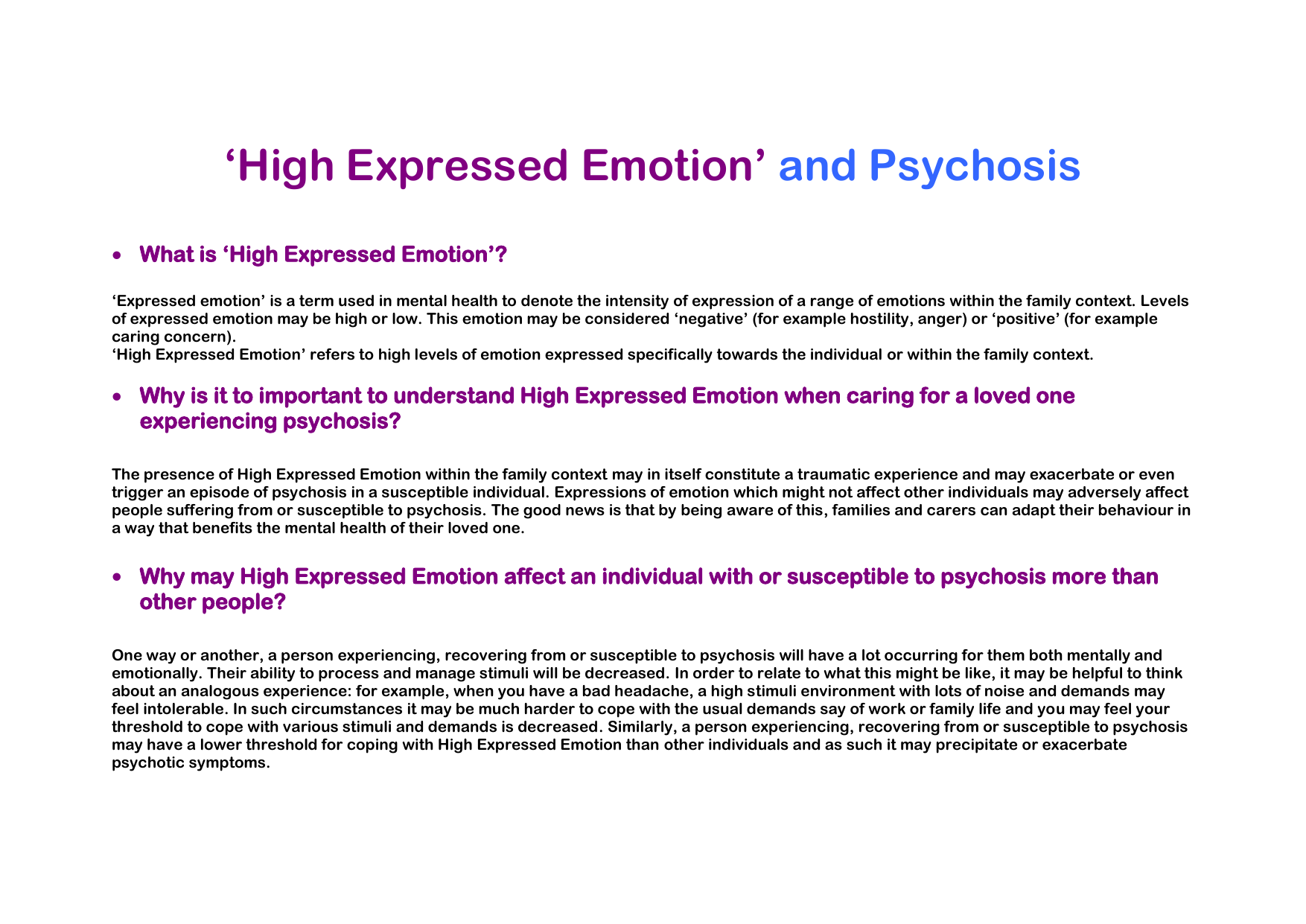



High Expressed Emotion Oxford Health Nhs Foundation Trust
Nov 23, 09 · Keywords predictors of EE in families, family environment expressiveness, expressed emotion and the family environment, family stress and expressed emotion Expressed emotion (EE), a measure of one family member's attitude toward another, is comprised of ratings of hostility and criticism (critical EE) and emotional over involvement (EOI)"Expressed emotion" (EE) is considered a marker of dysfunctional family interaction in patients with schizophrenia An alternative hypothesis, however, is that at least some of the different elements of EE really represent attempts on the part of carers to cope with and care for a relative with a psychiatric disorderAlthough this article describes a family variable that has been reliable linked to psychiatric relapse, there is no evidence that families cause disorders such as schizophrenia" (Hooley, 07, p 330) Survival of expressed emotion consistently emphasized relapse and not conditions before diagnosis Evolution of Expressed Emotion Concept
The expressed emotion construct, composed of criticism, hostility, emotional overinvolvement, warmth, and positivity, was intended to capture variation in routine emotional features of family life, rather than highly atypical or unusual patterns of relatingThe goal of this paper is to study attitude stability in schizophrenics' relatives, as reflected in the expressed emotion (EE) construct For this purpose, the EE of 32 families of schizophrenic patients was assessed by means of the Camberwell Family Interview (CFI, Brown, Birley, & Wing, 1972;Studies of patients' family environments have focused on expressed emotion (EE), that is, individual attitudes or predispositions that facilitate or interfere with interpersonal relationships and constitute a relational process between patients and their relatives 18,19 Important aspects of EE are criticism and emotional overinvolvement
Jan 25, 18 · Expressing Emotion is Good for Your Family!It is argued that children who grow up in families in which emotion is expressed freely develop greater skills of recognition and understanding of emotions, and these capacities are thought to contribute importantly to children's interactions, competence, and popularity with peers (CassidyAug 16, 18 · Expressed emotion is a complex concept which can evoke in family carers immense guilt and shame , which in turn can influence EE behaviours Whilst not pathological in itself, EE is a consistent and reliable predictor of relapse across a range of mental health difficulties




Effect Of Caregivers Expressed Emotion On The Care Burden And Ppa
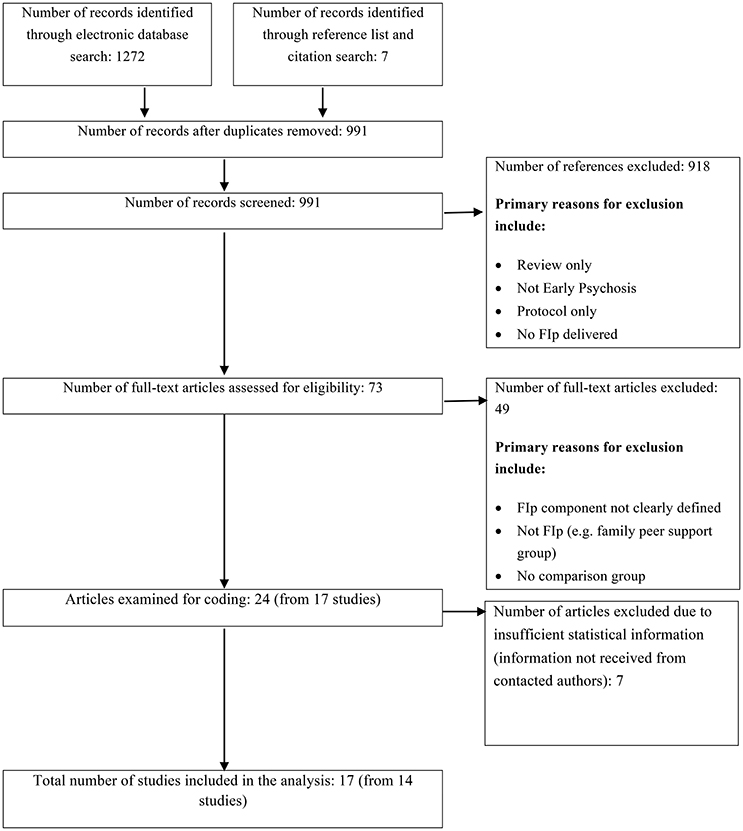



Frontiers Do Family Interventions Improve Outcomes In Early Psychosis A Systematic Review And Meta Analysis Psychology
Research has demonstrated that individuals from families with high "expressed emotion" are 37 times more likely to relapse than in families from low expressed emotion families Family relationships The evidence is now fairly clear, and has been repeated on many occasions, that family members' attitudes can affect the outcome for peopleExpressed emotion (EE) is the general reflection of the family's attitude towards the patient as a precursor to relapse in major psychiatric disorders On the basis of recent research on EE many family intervention programmes have been developed to reduce EE of the family and consequent relapse of illnessJun 01, 18 · Other studies focus on the communication and interaction patterns found in families of FEP patients and investigate the relationship between family members, through family burden (FB), in the experience of caring for the ill relative, as well as through the expressed emotion (EE) concept (GómezdeRegil et al, 14, Koutra et al, 16)




Hypothesized Relationship Among Expressed Emotion Ee Schizophrenic Download Scientific Diagram




Expressed Emotion A Family Vol13 No 2 1987 Expressed Emotion A Family 221 Families Experience Mental Illness Stand The Family Experience And Per Spective On Mental Illness
Sep 13, 12 · An appropriate understanding of the association between highExpressed Emotion (EE) in family members of people with schizophrenia, patients' and relatives' correlates is needed to improve adaptation of psychoeducational interventions in diverse cultures The aim of this study was to test the hypothesis that relatives designated as high EE would report higher subjectiveTitleExpressed Emotion in Families of Patients with Eating Disorders A Review of the Literature VOLUME 8 ISSUE 3 Author(s)Jeanne Duclos, Sarah Vibert, Lama Mattar and Nathalie Godart AffiliationInstitut Mutualiste Montsouris, Psychiatry Unit–Research Unit, 42 bd Jourdan FR Paris, France KeywordsAssessment methods, Anorexia Nervosa, Bulimia Nervosa, Parental Expressed EmotionJul 11, 12 · Expressed Emotion in Families of 1yearold Children This study, in Child Care, Health and Development, adds to the research that "high levels of expressed emotion (EE) in parents have been found to put (schoolage) children at risk for emotional and behavioural problems" by extending the research into family environments of 1yearolds




Kcm4issgegsqxm




Pdf Family Expressed Emotion In Relapse Of Alcoholism Githae Semantic Scholar
Jun 01, 1998 · BackgroundExpressed emotion (EE) is a measure of the family environment that has been demonstrated to be a reliable psychosocial predictor of relapse in schizop Our website uses cookies to enhance your experience By continuing to use our site, or clicking "Continue," you are agreeing to our Cookie Policy ContinueExpressed Emotion as a Precipitant of Relapse in Psychological Disorders Defining Expressed Emotion Expressed emotion is a huge factor during the recovery process of those diagnosed with Measuring Expressed Emotion There is a scale that is usedThe attri bution model was found to provide an explanatory framework for un derstanding relatives' expressed emotions (EE) toward a family mem ber suffering from psychotic disturbances Four case reports indicated that family photographs induced parents to create narratives in which emotions, attributions, and strategies for coping with




The Association Between Expressed Emotion Illness Severity And Subjective Burden Of Care In Relatives Of Patients With Schizophrenia Findings From An Italian Population Topic Of Research Paper In Psychology Download Scholarly




Sociocultural Factors Sz Ppt Download
Emotional intelligence in the family There's nothing like family The people we're related to by blood and marriage are expected to be our closest allies, our greatest sources of love and support Too often, however, our interactions with family are filled with misunderstanding and resentment, bickering and badgeringWe're lucky to have so many different emotions at our disposal We can be happy, sad, angry, thrilled, scared, satisfiedExpressed emotion instruments measure variant levels of criticism, blaming, and anger within families of mentally ill people Some theorists believe that high levels of expressed emotion predispose schizophrenic patients for relapse However, recent trends in family therapy indicate that high expres




Expressed Emotion And Socio Demographic And Clinical Factors In Families Of Brazilian Patients With Schizophrenia Semantic Scholar




Expressed Emotion In Multiple Subsystems Of The Families Of Toddlers With Depressed Mothers Development And Psychopathology Cambridge Core
Brown & Rutter, 1966),Expressed emotion (EE), a qualitative measure of the 'amount' of emotion displayed, typically in the family setting, usually by a family or care takers Theoretically, a high level of EE in the home can worsen the prognosis in patients with mental illness ,(Brown et al, 1962, 1972) or act as a potential risk factor (JR Asarnow, M Tompson, S Woo, DP Cantwell6,17 the expressed emotion component with the greatest predictive value varies from hostility in Chandigarh17 to critical comments in Geneva18 Moreover, the stability of expressed emotion over time
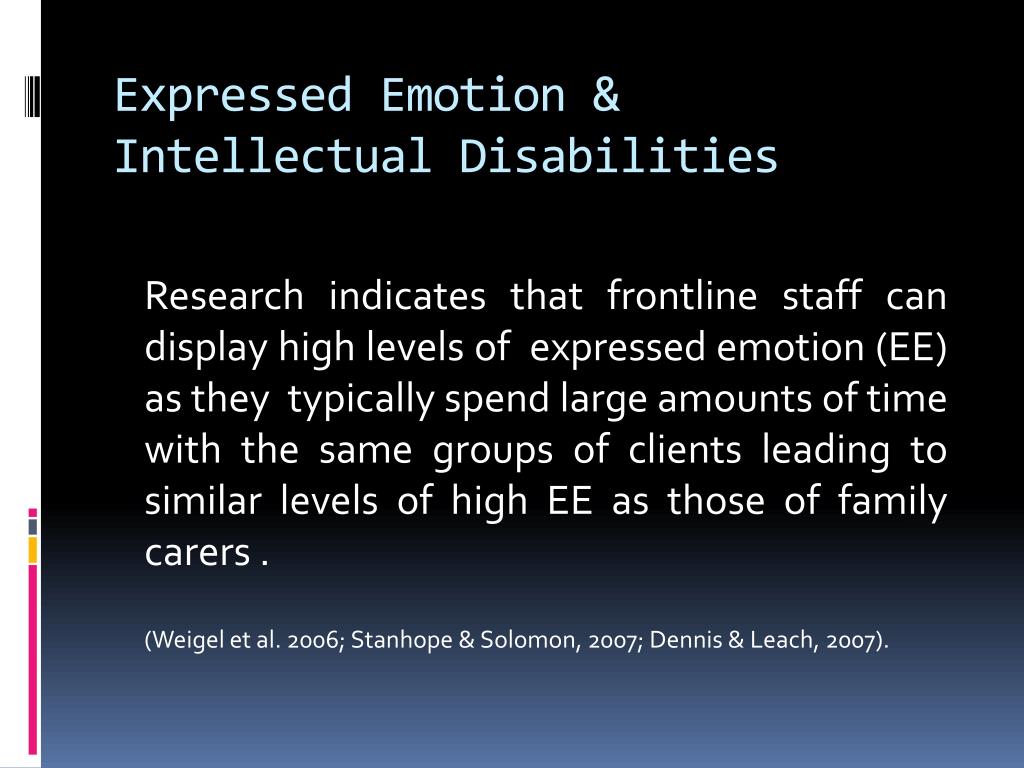



Ppt Exploring Links Between Expressed Emotion Challenging Behaviour And Burnout In Learning Disability Frontline Staff Emm Powerpoint Presentation Id




Expressed Emotion In The Families Of Patients With Schizophrenia And Its Influence On The Course Of Illness Semantic Scholar
Nov 07, · High expressed emotion (EE) in a patient's family is a known risk factor of relapse in schizophrenia The three components of high EE – criticism, hostility and emotional overinvolvement – were developed through a datadriven approach and a focus on overt abrasive behaviours The influence of covert abrasive behaviours has not been exploredVaughn & Leff, 1976b), both initially and at a 9month followupMar , 15 · Emotional conditions governing the family and patients' perceived social support play important roles in the treatment or relapse process of the chronic diseaseThe current study aimed to investigate the role of family expressed emotion and perceived social support in prediction of addiction relapseThe descriptivecorrelation method was used in the current study




High Expressed Emotion Oxford Health Nhs Foundation Trust
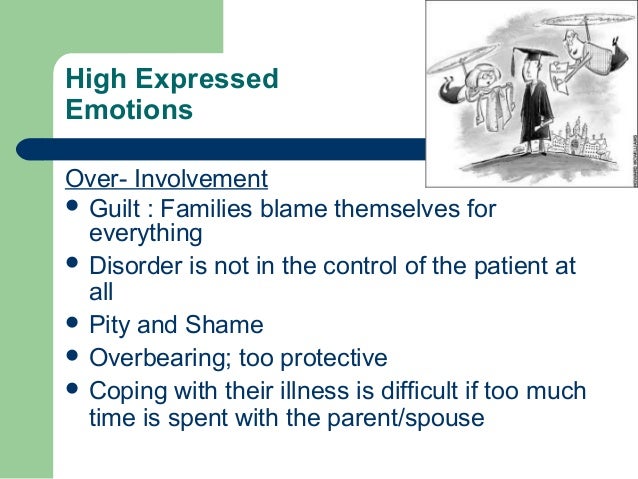



Expressed Emotions
Research on expressed emotion in the families of schizophrenic patients has seemed to offer a new perspective on environmental factors that cause relapse in schizophrenia A review of the literature, however, reveals that while expressed emotion may predict relapse, there is no evidence that it causes relapse, Nor does the evidence support theObjective To review studies assessing Expressed Emotion among parents/relatives of patients with Anorexia Nervosa and Bulimia Nervosa Method A systemaAug 06, 1994 · The proportion of families showing high expressed emotion is smaller in developing countries and rural communities than in Western urban samples;



Parental Depressive Symptoms Children S Emotional And Behavioural Problems And Parents Expressed Emotion Critical And Positive Comments
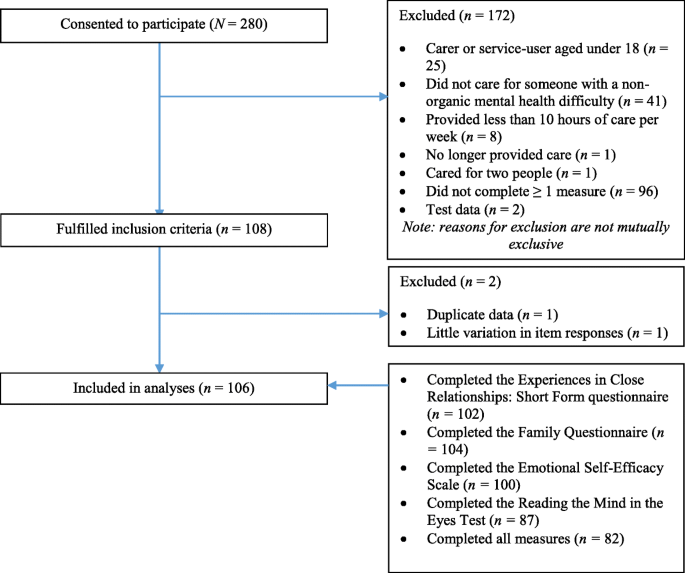



Attachment Mentalisation And Expressed Emotion In Carers Of People With Long Term Mental Health Difficulties Bmc Psychiatry Full Text
Feb 19, 21 · High levels of expressed emotion (EE) are present in families of individuals with an atrisk mental state (ARMS) of psychosis and can negatively impact on service users' functioning and symptoms, as well as relatives' psychological wellbeingDec 15, · End of treatment Once the patient and family reach their goals, the sessions become less common Health professionals and families make plans for longterm followup The Leff model This approach offers a set of socialfamiliar interventions designed to change high expressed emotion (EE)Families with high expressed emotion view the symptoms of schizophrenia as controllable and that the hostility arises when family members think that the patients just do not want to help themselves Treatments NeurolepticsNeuroleptics help people think more clearly and reduce hallucinations and delusions




Slides Show




Expressed Emotion Quality Of Life And Burden Of Caregivers A Study On Schizophrenia And Bipolar Affective Disorder In Indian Context Kaushik Pratima Amazon Com Books
Nov 07, · High expressed emotion (EE) in a patient's family is a known risk factor of relapse in schizophrenia The three components of high EE – criticism, hostility and emotional overinvolvement – were developed through a datadriven approach andThe FiveMinute Speech Sample (FMSS) measures aspects of expressed emotion (EE), generally defined as a parent's emotional tone towards the child (Magaña et al, 1986)The expressed emotion (EE) is considered to be an adverse family environment, which includes the quality of interaction patterns and nature of family relationships among the family caregivers and patients of schizophrenia and other psychiatric disorders




Abnormal Psychology In A Changing World Eighth Edition Jeffrey S Nevid Spencer A Rathus Beverly Greene Chapter 12 Schizophrenia And Other Psychotic Disorders Ppt Download




Pdf Expressed Emotion In Families Of Patients With Eating Disorders A Review Of The Literature
Express Genuine Emotion It's Worth It!An Attributional Analysis of Expressed Emotion in MexicanAmerican Families With Schizophrenia Amy Weisman, Steven Regeser Lopez, Marvin Karno, and Janis Jenkins In this study we tested an attributional model of expressed emotion (EE) among MexicanAmerican families A sample of 46 key family members of schizophrenic patients were measured onApr 01, 06 · Abstract Research on expressed emotion in the families of schizophrenic patients has seemed to offer a new perspective on environmental factors that cause relapse in schizophrenia A review of the literature, however, reveals that while expressed emotion may predict relapse, there is no evidence that it causes relapse, Nor does the evidence




What Is Expressed Emotion What Does Expressed Emotion Mean Expressed Emotion Meaning Youtube




Pdf Expressed Emotion In Families A Critical Review
Oct 02, 13 · 6 High Expressed Emotions Over Involvement Guilt Families blame themselves for everything Disorder is not in the control of the patient at all Pity and Shame Overbearing;Too protective Coping with their illness is difficult if too much time is spent with the parent/spouse 7 Low Expressed Emotions Reserved criticism Limited expressedSuch an approach does little to help professionals in




Expressed Emotion In Families Of Patients With Eating Disorders Ingenta Connect
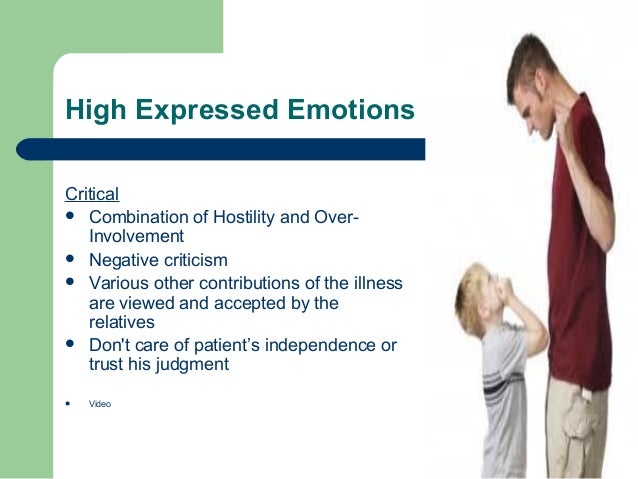



Expressed Emotions
Jun 13, 17 · The construct of expressed emotion (EE), developed in the 1960s and 1970s in England by Brown et al 2 and Brown and Rutter, 3 is an important measure of the patient–relative (or caregiver) relationship It is represented by a series of specific emotions, attitudes, and behaviors expressed by caregivers toward the patient 4




Kcm4issgegsqxm



Predictors Of Criticism And Emotional Over Involvement In Relatives Of Early Psychosis Patients
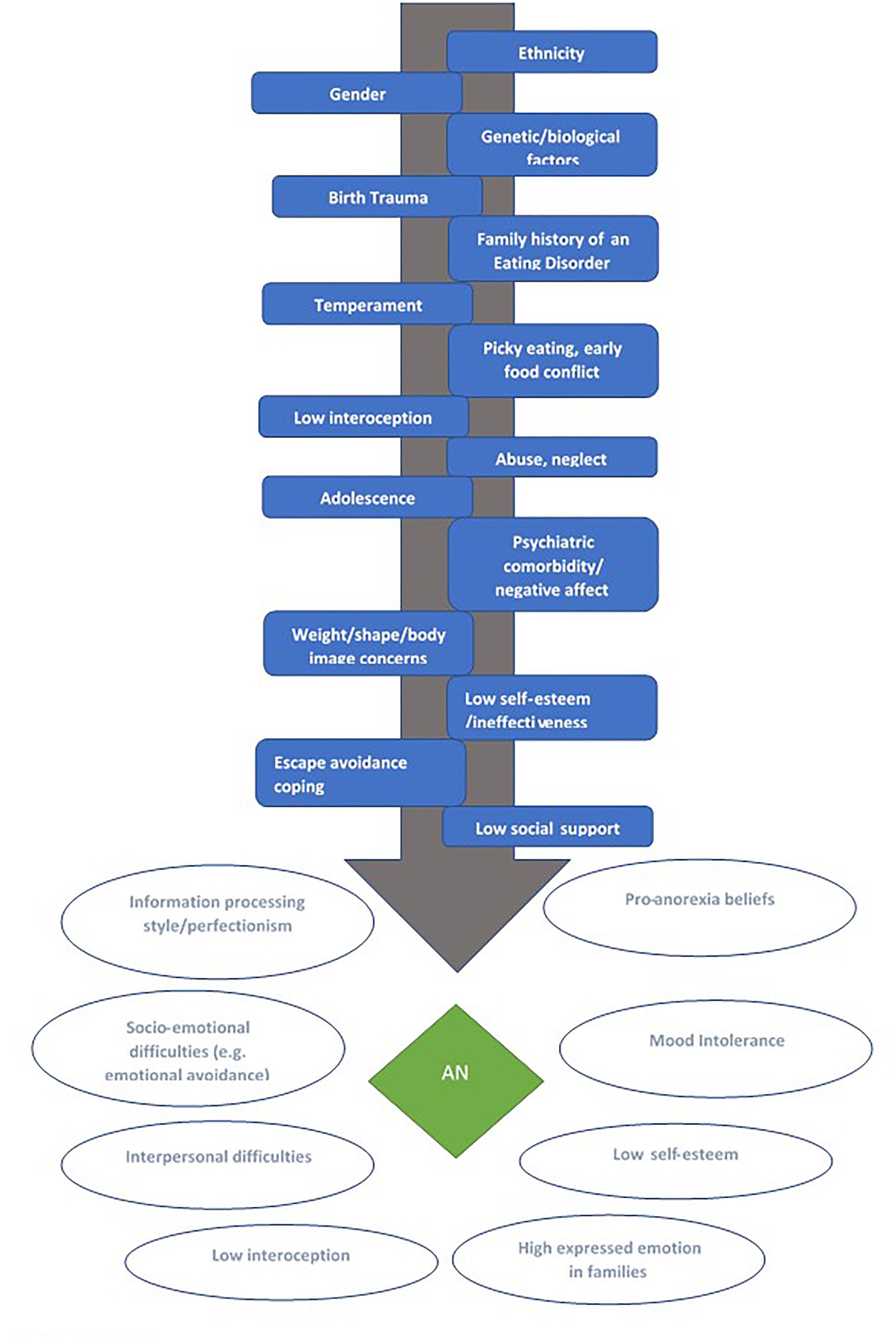



Frontiers Anorexia Nervosa And A Lost Emotional Self A Psychological Formulation Of The Development Maintenance And Treatment Of Anorexia Nervosa Psychology
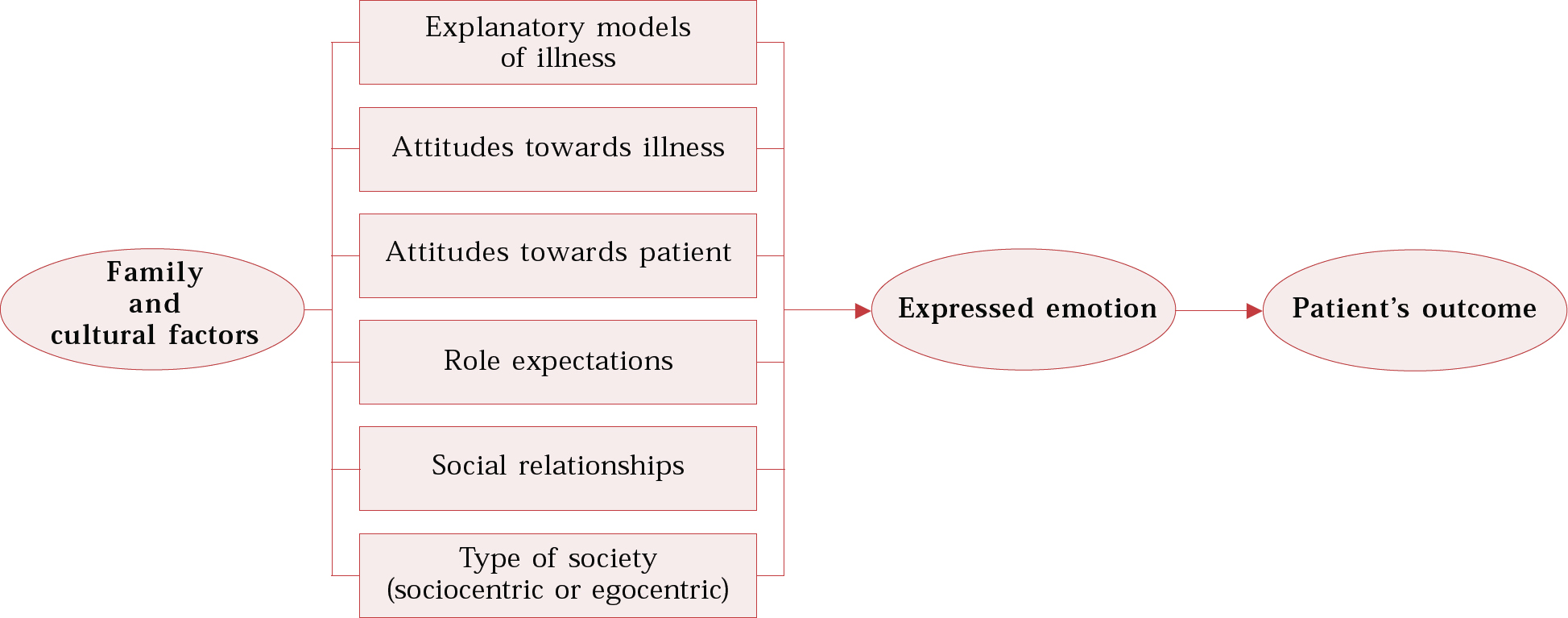



Expressed Emotion Across Cultures Advances In Psychiatric Treatment Cambridge Core
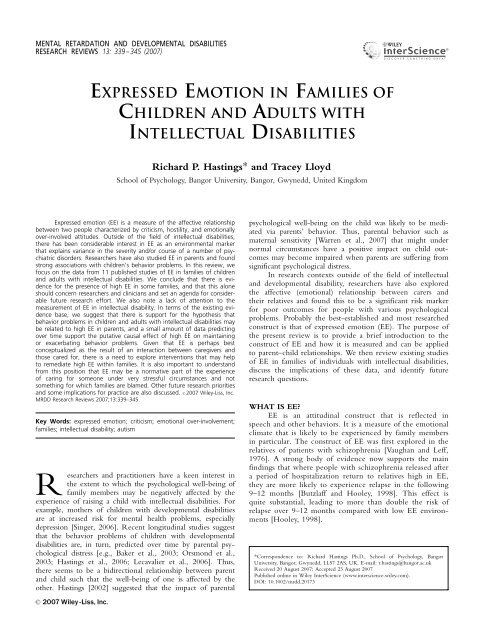



Expressed Emotion In Families Of Children And Adults With Intellectual




Pdf Expressed Emotion Communication Deviance And Culture In Families Of Patients With Schizophrenia A Review Of The Literature




The Expression Of The Emotions In Man And Animals Wikipedia
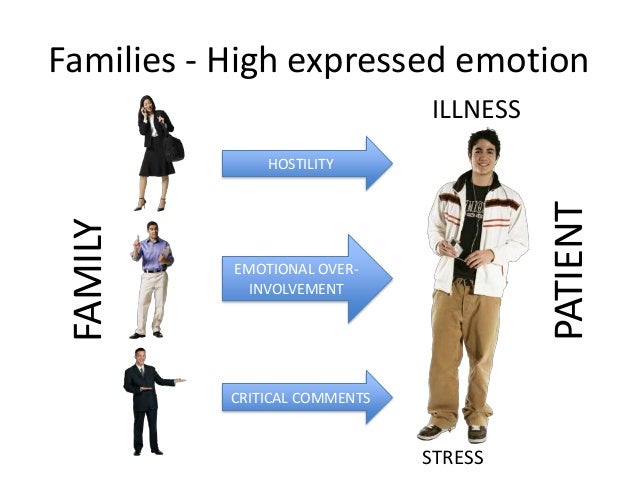



Relationships And Mental Illness




Expressing Emotion Is Good For Your Family
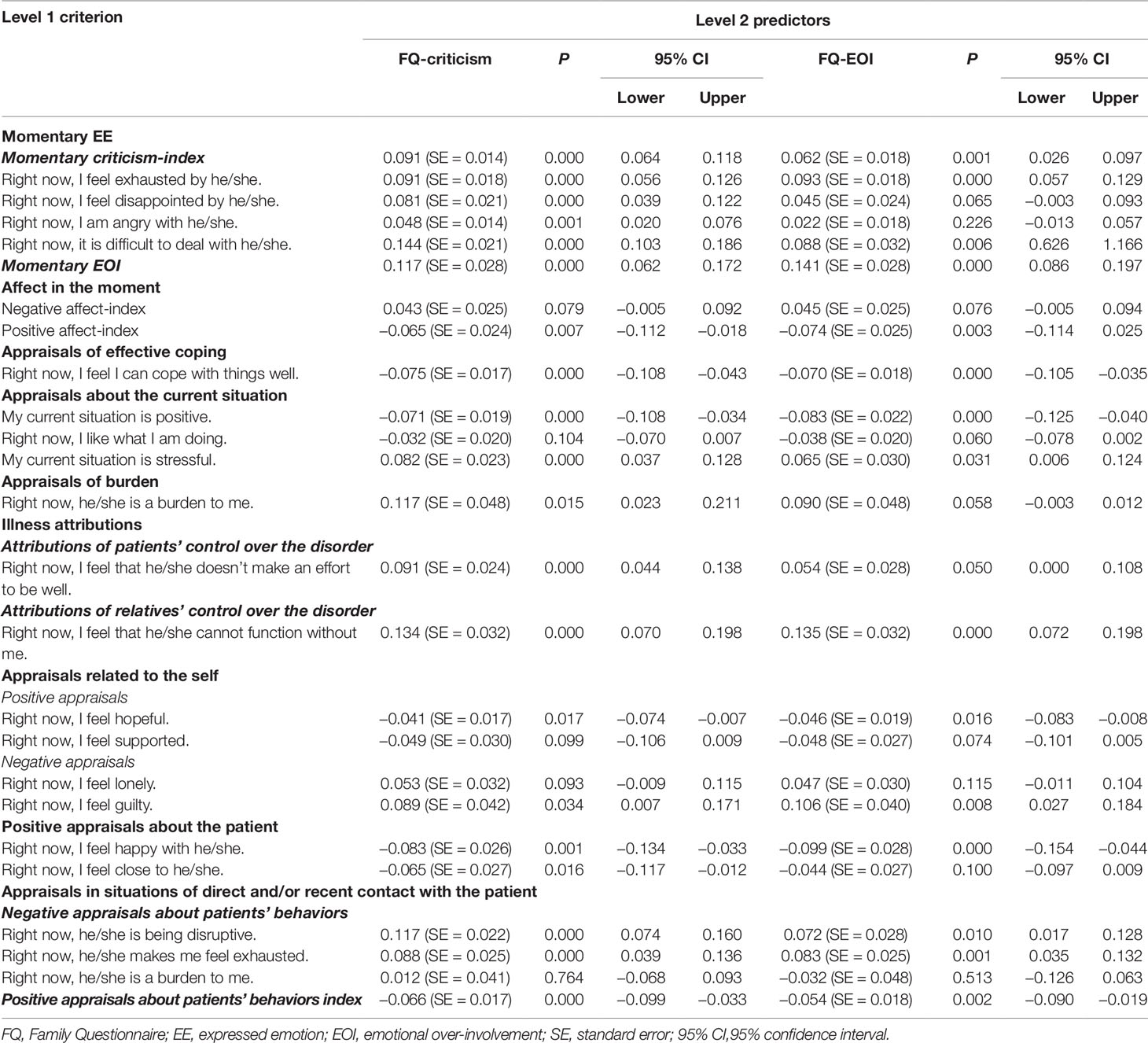



Frontiers Ecological Validity Of Expressed Emotion In Early Psychosis Psychiatry




Guilt Shame And Expressed Emotion In Carers Of People With Long Term Mental Health Difficulties A Systematic Review Sciencedirect




Pdf An Overview Of Expressed Emotion
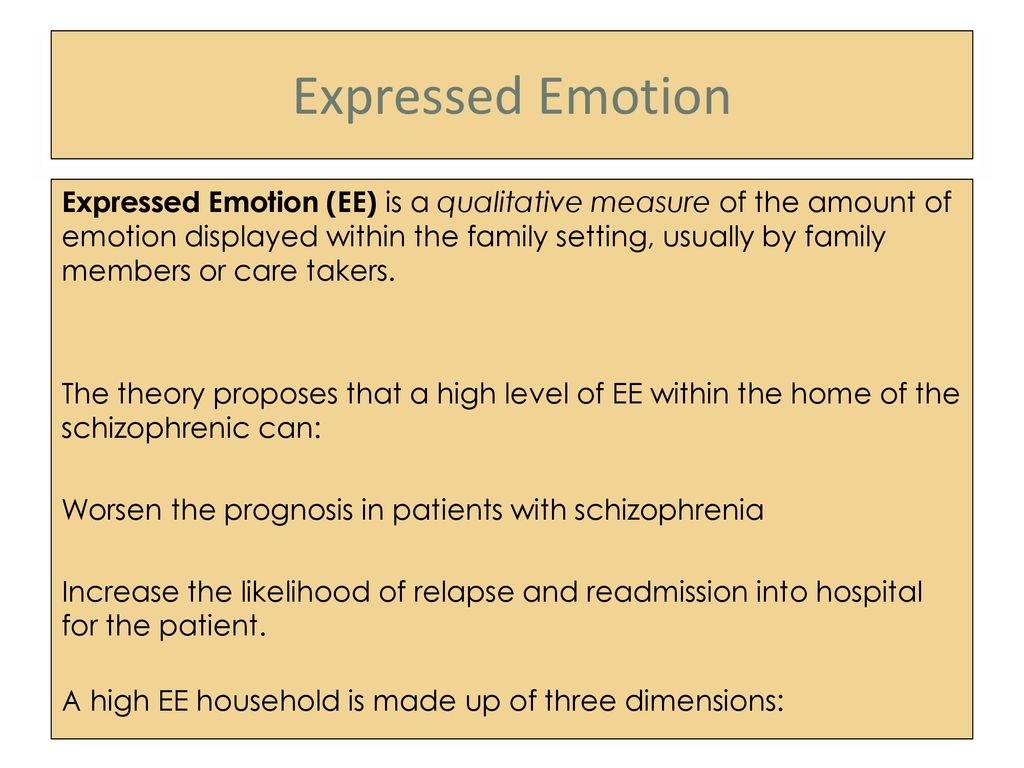



Psychological Explanation Ppt Download




Expressed Emotion A Family Vol13 No 2 1987 Expressed Emotion A Family 221 Families Experience Mental Illness Stand The Family Experience And Per Spective On Mental Illness




Effect Of Caregivers Expressed Emotion On The Care Burden And Ppa




Expressed Emotions And Schizophrenia In Pakistan




Amazon Com Expressed Emotion In Families Its Significance For Mental Illness Leff Julian Vaughn Christine Books




Testing The Psychometric Properties Of A Chinese Version Of The Level Of Expressed Emotion Scale
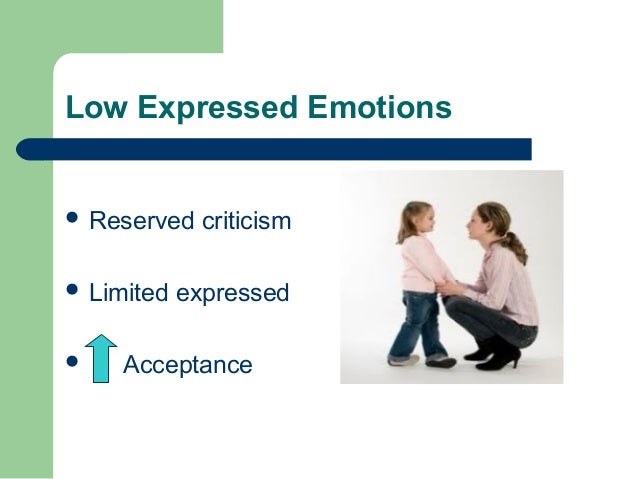



Expressed Emotions
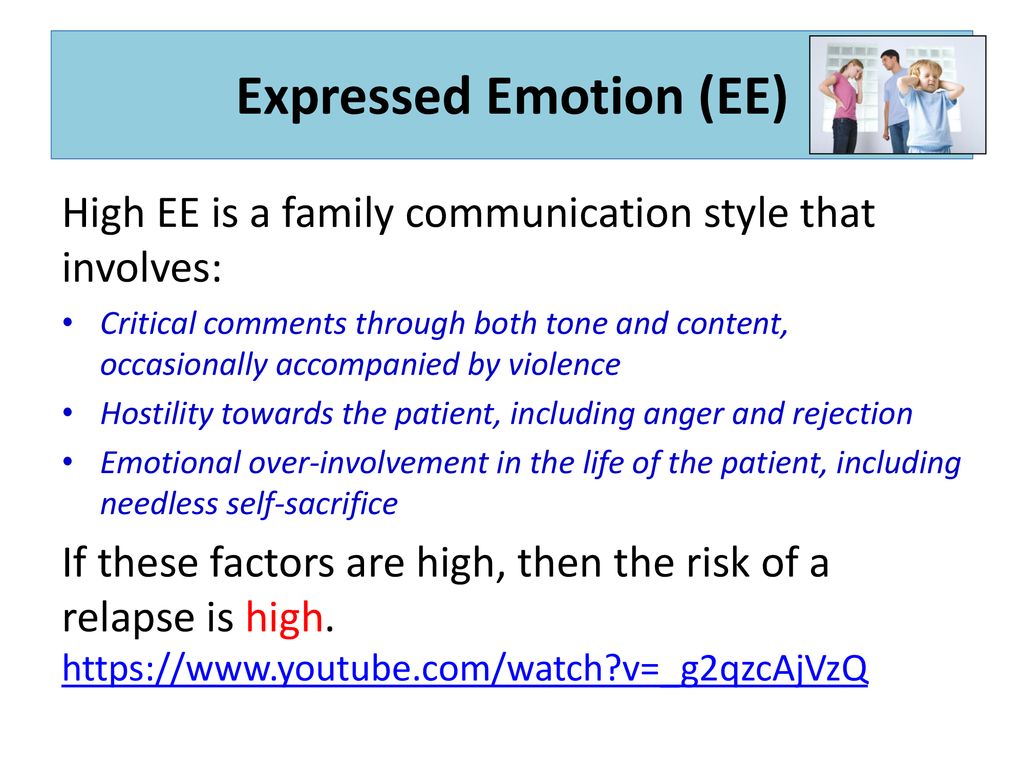



Psychological Explanations For Schizophrenia 1 Ppt Download
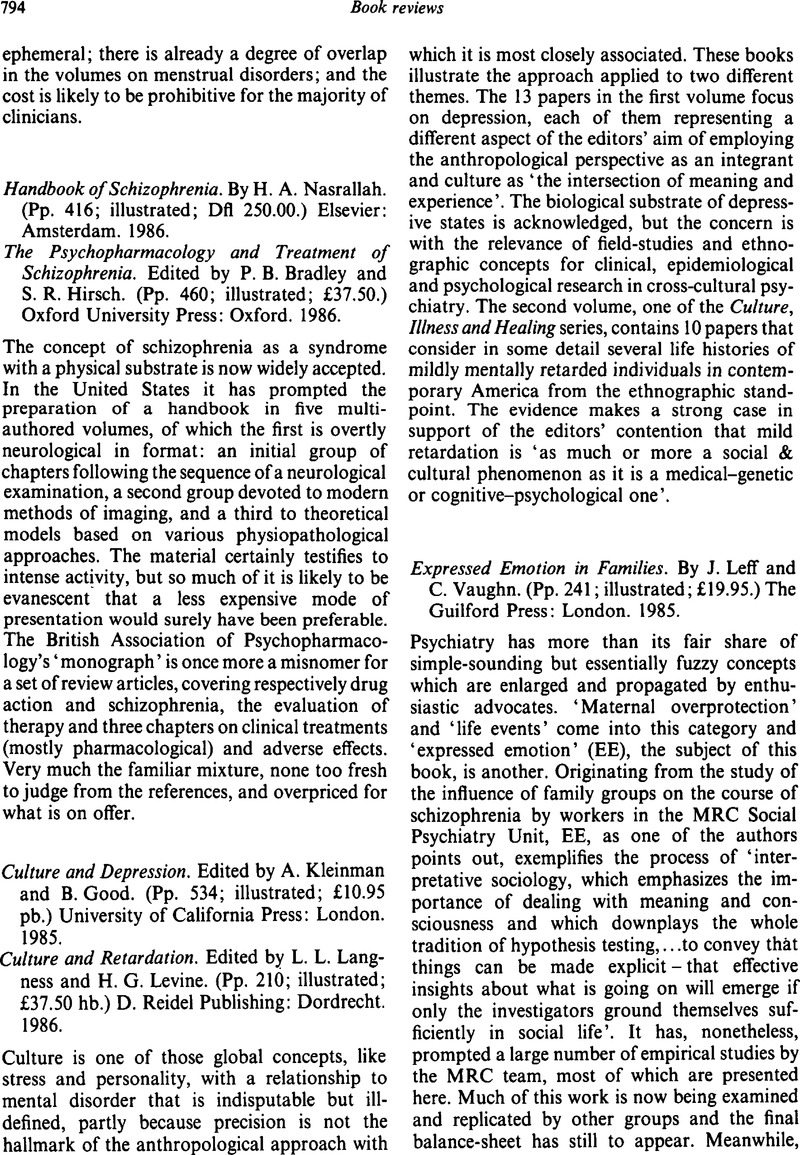



Expressed Emotion In Families By J Leff And C Vaughn Pp 241 Illustrated 19 95 The Guilford Press London 1985 Psychological Medicine Cambridge Core
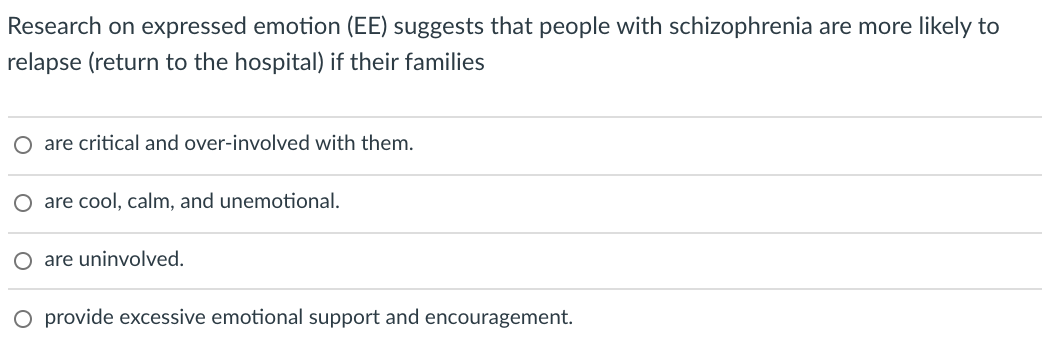



Solved Which Is A Persecutory Type Of Psychotic Delusion Chegg Com
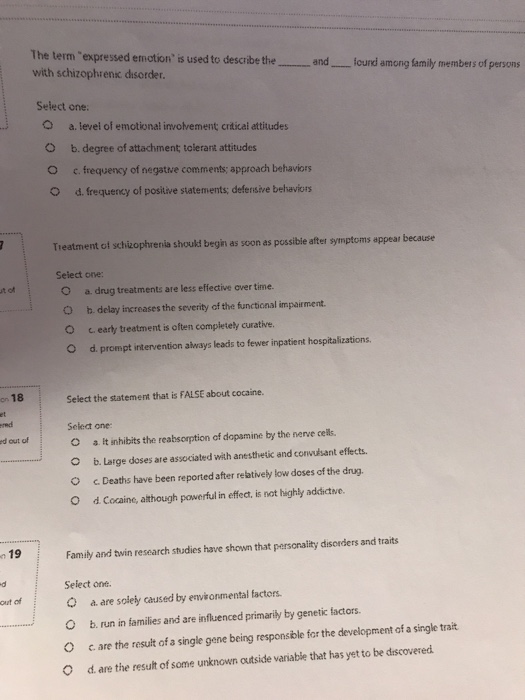



Solved The Term Expressed Emotion Is Used To Describe Th Chegg Com




Abnormal Psychology In A Changing World Seventh Edition
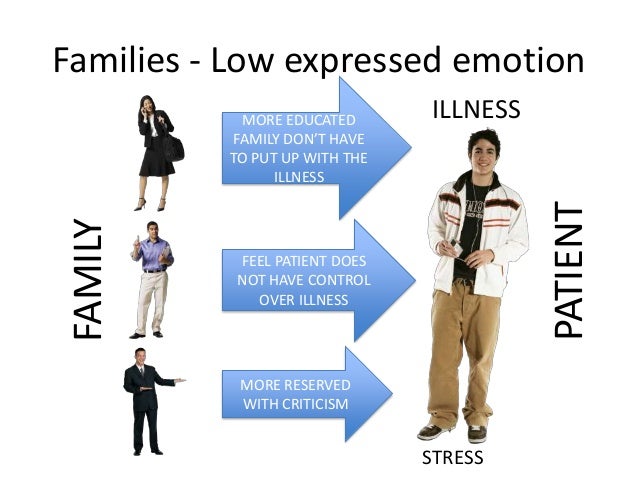



Relationships And Mental Illness
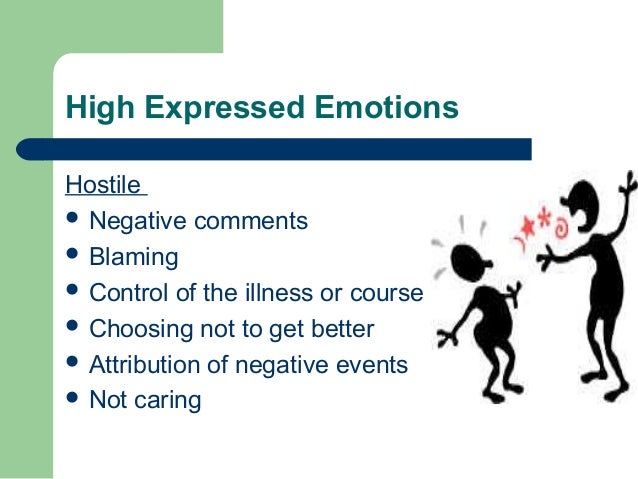



Expressed Emotions
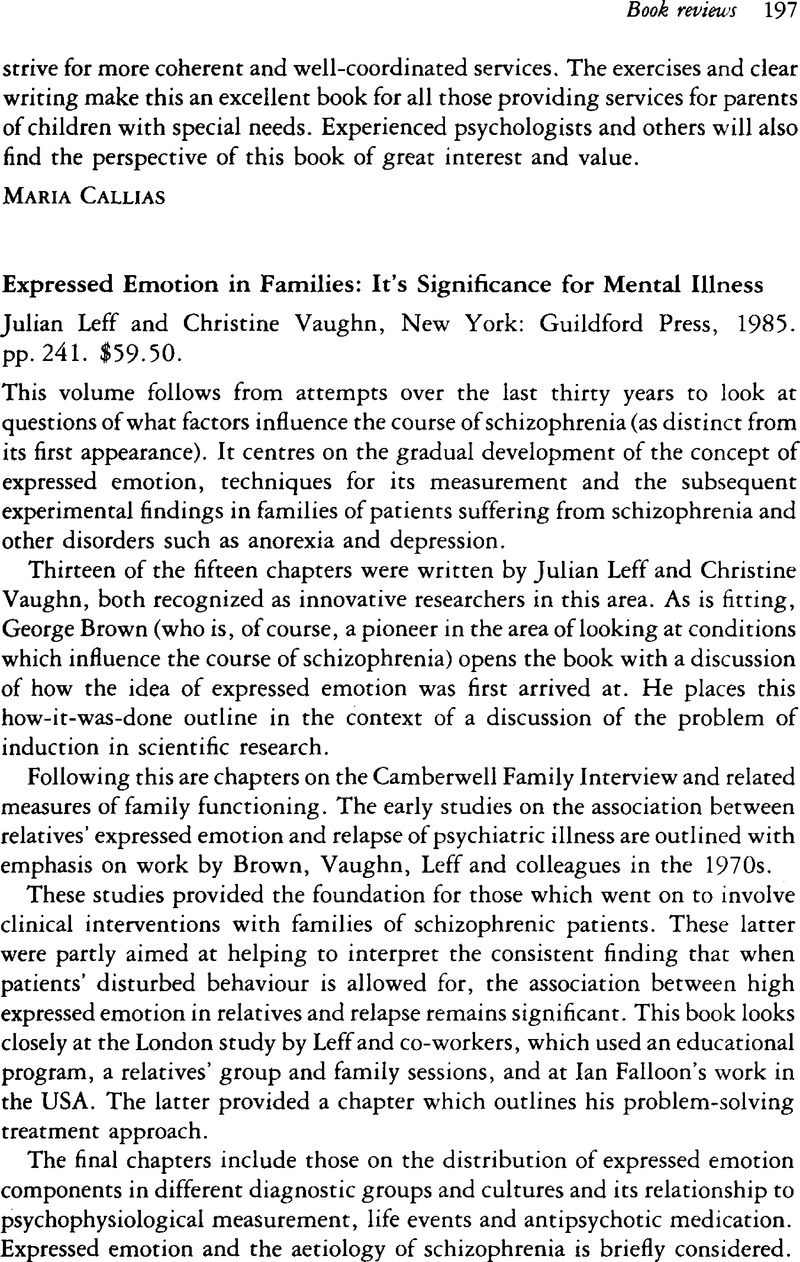



Expressed Emotion In Families It S Significance For Mental Illnessjulian Leff And Christine Vaughn New York Guildford Press 1985 Pp 241 59 50 Behavioural And Cognitive Psychotherapy Cambridge Core




Can Parent Training For Parents With High Levels Of Expressed Emotion Have A Positive Effect On Their Child S Social Anxiety Improvement Sciencedirect



Full Article Family Environment Expressed Emotion And Adolescent Self Harm A Review Of Conceptual Empirical Cross Cultural And Clinical Perspectives



Expressed Emotion And Interpersonal Control In Families Of Persons With Mental Illness Taylor Francis Group




Pdf The Relationship Between Expressed Emotion And Wellbeing For Families And Carers Of A Relative With Borderline Personality Disorder
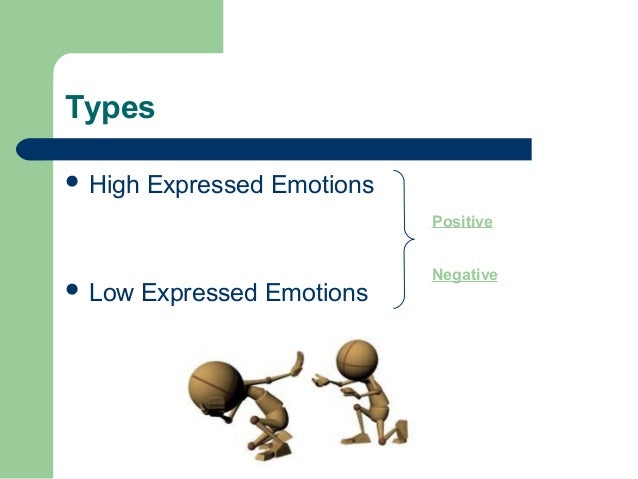



Expressed Emotions




Pdf The Family Attitude Scale Reliability And Validity Of A New Scale For Measuring The Emotional Climate Of Families David Kavanagh Academia Edu




The Needs Of High And Low Expressed Emotion Families A Normative Approach Semantic Scholar




Top Pdf Expressed Emotion 1library




Expressed Emotion Framework Download Scientific Diagram
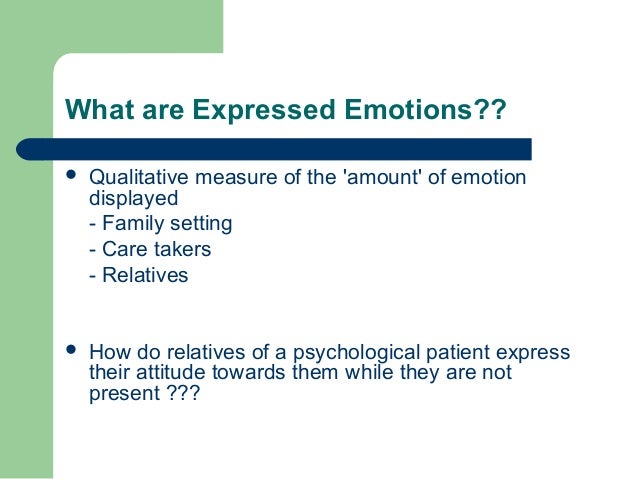



Expressed Emotions




Expressed Emotion In The Families Of Patients With Schizophrenia And Its Influence On The Course Of Illness Springerlink




Role Of Expressed Emotion In Family Psychopathology Psychiatry Advisor




Expressed Emotion In Families Its Significance For Mental Illness Julian Leff Christine Vaughn Wellcome Collection
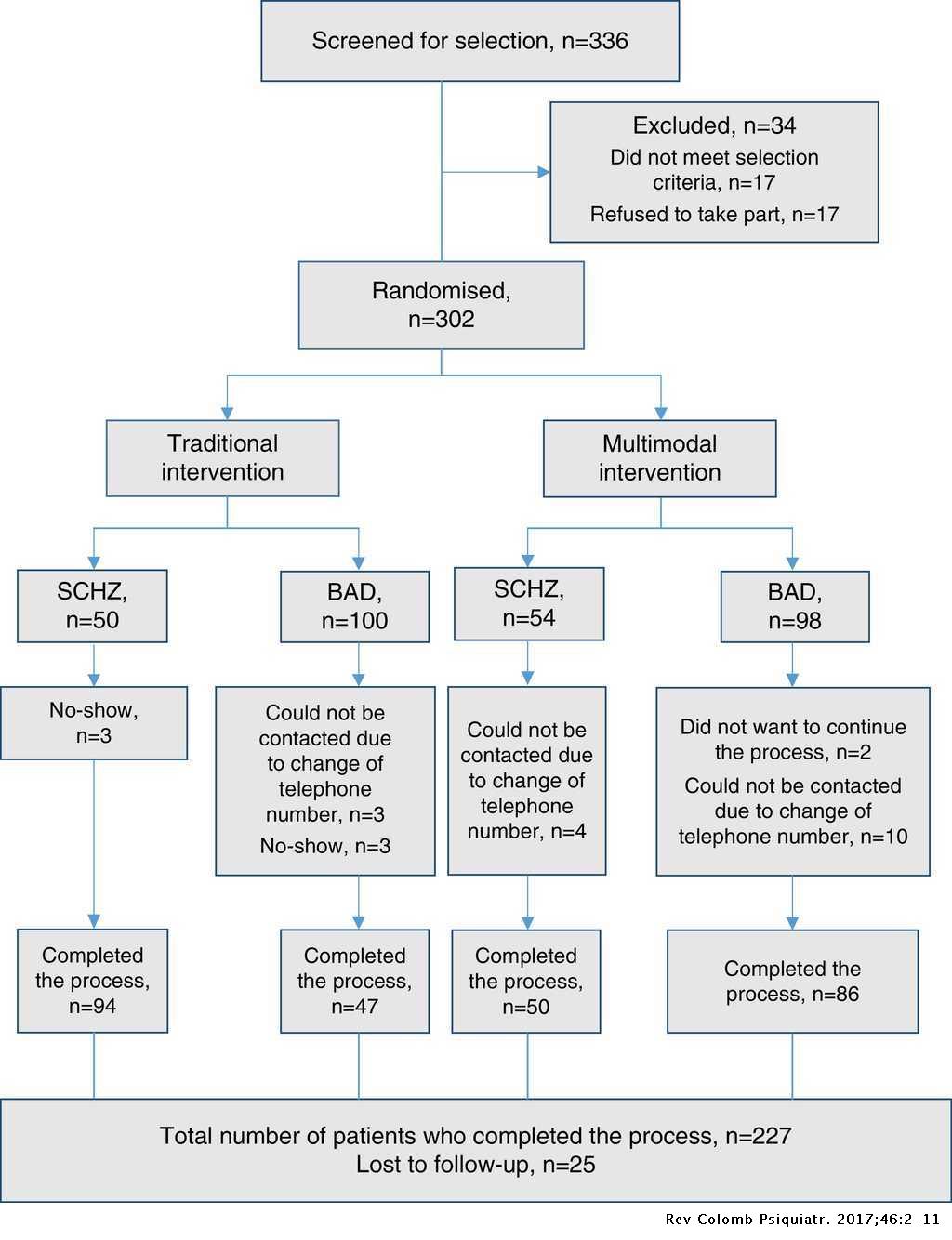



Expressed Emotions Burden And Family Functioning In Schizophrenic And Bipolar I Patients Of A Multimodal Intervention Programme Prisma Revista Colombiana De Psiquiatria English Edition




Expressed Emotion In Families Its Significance For Mental Illness By Julian Leff




Amazon Com Expressed Emotion In Families Its Significance For Mental Illness Leff Julian Vaughn Christine Books




Expressed Emotion In The Families Of Patients With Schizophrenia And Its Influence On The Course Of Illness Semantic Scholar




Bipolar I Disorder And Expressed Emotion Of Families A Cohort Study In Japan
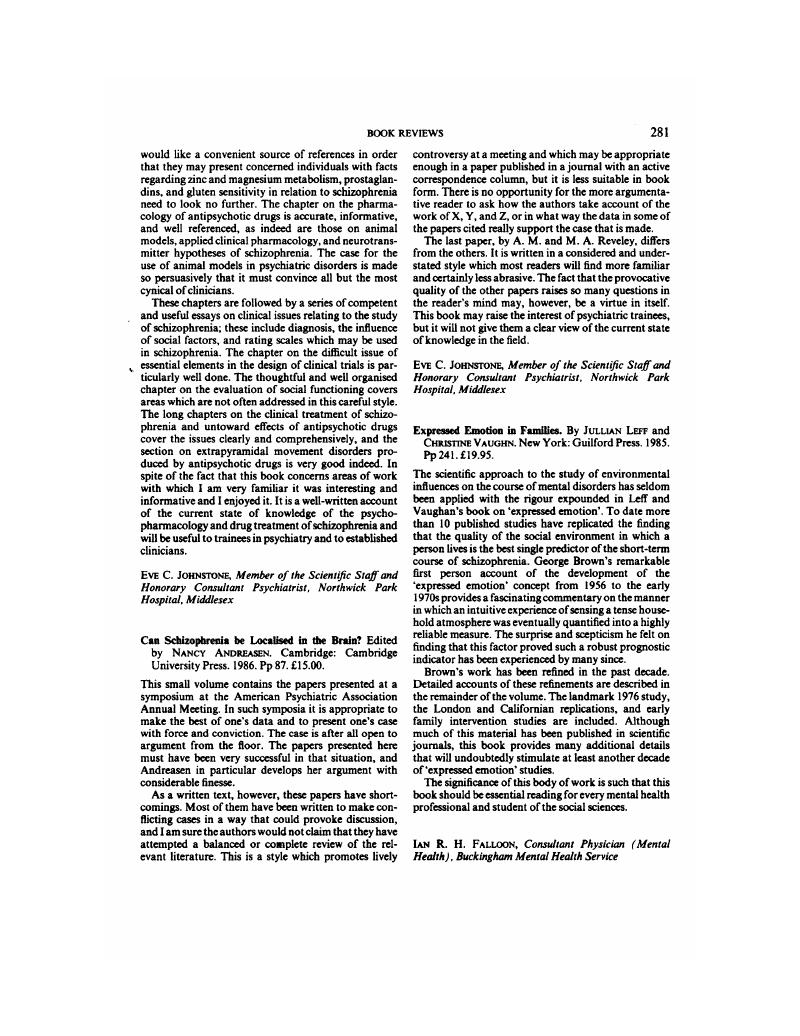



Expressed Emotion In Families By Julllan Leff And Christine Vaughn New York Guilford Press 1985 Pp 241 19 95 The British Journal Of Psychiatry Cambridge Core




Abnormal Psych Ch 13 Schizophrenia Flashcards Quizlet




Pdf Relationship Between Caregiver Burden And Expressed Emotion In Families Of Schizophrenic Patients




Attachment Mentalisation And Expressed Emotion In Carers Of People With Long Term Mental Health Difficulties Bmc Psychiatry Full Text




Effect Of Caregivers Expressed Emotion On The Care Burden And Ppa




Pdf Expressed Emotion In Families And The Treatment Of Obsessive Compulsive Disorder Leslie Shapiro Academia Edu



0 件のコメント:
コメントを投稿